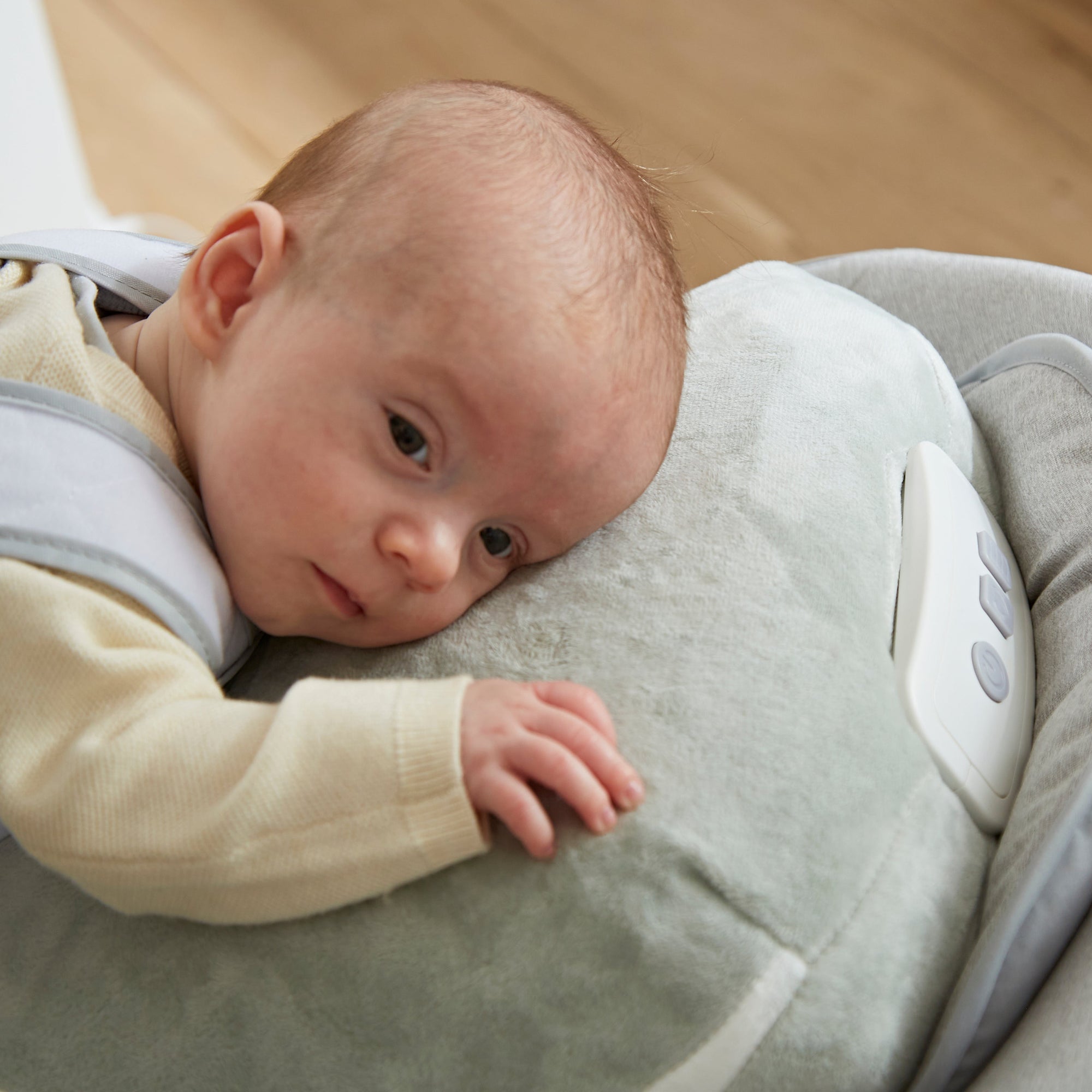It's possible to feel your baby move as early as 16 weeks of pregnancy, but most women don't feel anything until 18 to 24 weeks. You may not notice your baby's movements until you are more than 20 weeks pregnant if this is your first pregnancy.
What does a movement feel like?
Fetal movements, commonly known as "kicks" are baby movements in the womb that can feel like a flutter, kick, swish, or roll. As your pregnancy advances, the sort of movement you feel may change.
How often should my baby move?
Every baby is different, therefore there is no standard number of ‘normal’ movements you should be feeling. From 18 to 24 weeks, you should notice a gradual increase in the baby's movements. From 32 weeks onwards, the movements will stay roughly the same up until your baby is born.
It isn’t true that babies move less as pregnancy progresses. You should continue to feel your baby move until you go into labour and while you're in labour. Learn to recognise your baby's typical kicks and motions. If you are concerned about your baby's movements, don’t wait until the next day to get advice.
If you suspect your baby's movements have slowed, stopped, or changed, call your midwife or maternity centre right away. The maternity ward of the hospital is staffed 24 hours a day, seven days a week. Don’t be concerned about making that phone call; if your baby's movements have slowed or stopped, your doctor and midwife must be informed.
Why are my baby’s movements important?
It's reassuring and a good sign when you can feel your baby move. If your baby moves less than usual or if you notice a change, it could be a crucial sign that they are sick so receiving the appropriate care as quickly as possible may save your baby's life.
Is there anything that can affect being able to feel my baby move?
When you're active or preoccupied, you're less likely to notice your baby's movements. It may be difficult for you to feel your baby's movements if your placenta is at the front of your uterus (womb). You may notice less motions if your baby's back is positioned toward the front of your uterus rather than beside your own.
However, don't assume that this is the reason you can't feel your baby's movements. Contact your midwife or maternity unit right away if you believe your baby's movements have slowed, stopped, or changed. It's always a good idea to get checked out. You should be able to feel your baby move whether they are lying head down or bottom first.
Can I make my baby move?
You should not attempt to make your baby move, contact your midwife or maternity unit right away if you believe your baby's movements have slowed, stopped, or changed.
What happens if my baby's movements have slowed down?
Less than 24 weeks pregnant
If you haven't felt your baby move by 24 weeks, contact your midwife. They'll listen for your baby's heartbeat and may perform an ultrasound and refer you to a foetal medicine specialist to check on your baby's health.
Between 24 and 28 weeks pregnant
You should immediately contact your midwife or a local maternity unit. Do not put off your decision till the next day or your next appointment.
A comprehensive antenatal check-up will be performed which will involve assessing your blood pressure and testing your urine for protein. You may get an ultrasound scan to check on your baby's growth and development if your uterus is smaller or larger than expected.
Over 28 weeks
You should immediately contact your midwife or a local maternity unit. Do not put off your decision till the next day or your next appointment.
Your baby's heart rate will be measured to reassure you about your baby's well-being at your antenatal check-up. A cardiotocograph monitor is used for this.
An ultrasound scan may be arranged if:
- your womb is smaller or larger than expected
- you have a high risk pregnancy
- the heart rate is normal but you still feel that your baby's movements are slower or less frequent
- you have had reduced fetal movements earlier in your pregnancy.
If the movements have slowed down does it mean my baby is not well?
Although fewer movements could indicate that your baby is ill, these tests normally find that everything is well. The majority of women who have had an episode with less movements go on to have a healthy pregnancy and baby. However, it is critical that you are assessed in order to ensure that everything is in order.
What if my baby’s movements are reduced again?
Even if everything was fine previously, you should contact your midwife or maternity unit right away if you are still unhappy with your baby's movements following your checkup.
No matter how many times this happens, always ask for advice. Your baby's health is all that matters!
Related Blogs:


